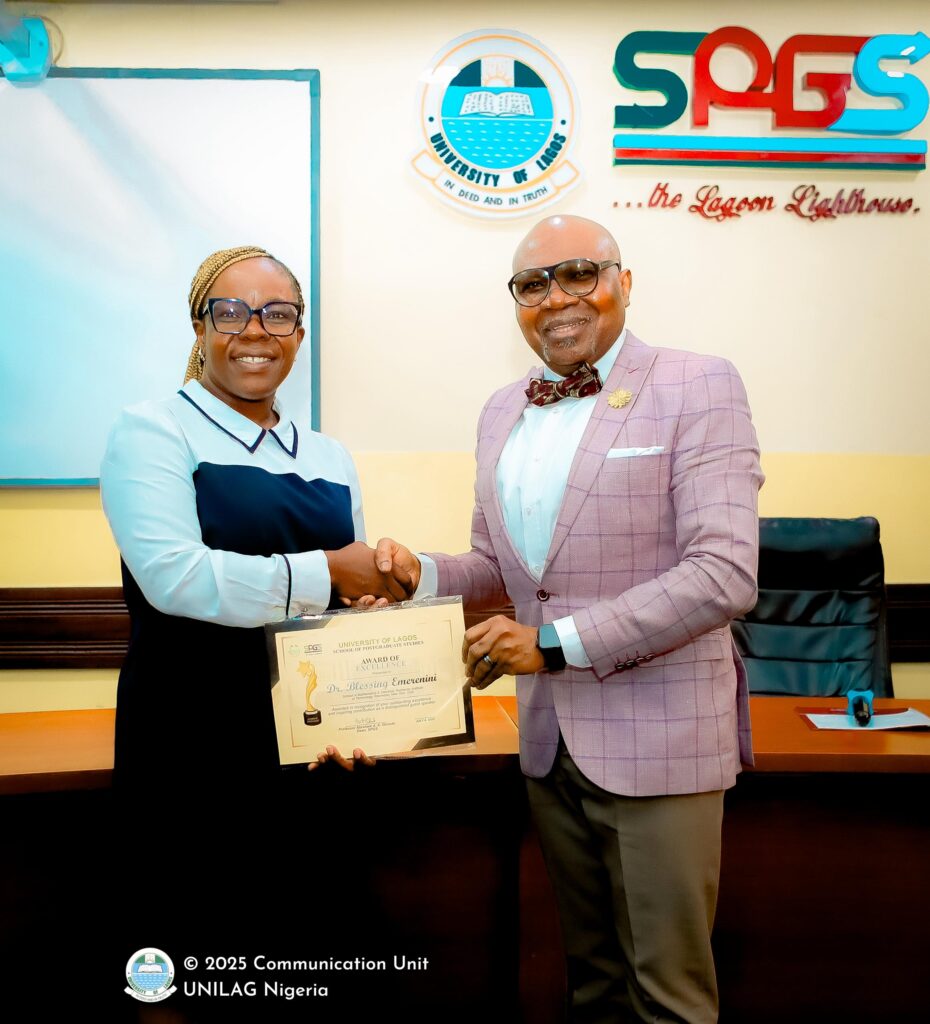A Mathematician and Researcher at the School of Mathematics and Statistics, Rochester Institute of Technology (RIT), New York, Dr. Blessing Emerenini has underscored the growing relevance of data, mathematical modelling, and simulation in unveiling the complexities of microbial life.
She stated this during an Interactive Live Session hosted by the School of Postgraduate Studies (SPGS), University of Lagos (UNILAG) on Friday, July 4, 2025. With the theme: The Invisible Architects: Mapping Microbial Worlds Through Modelling, Data, and Simulation, the hybrid session brought together postgraduate students, and faculty members of the University.
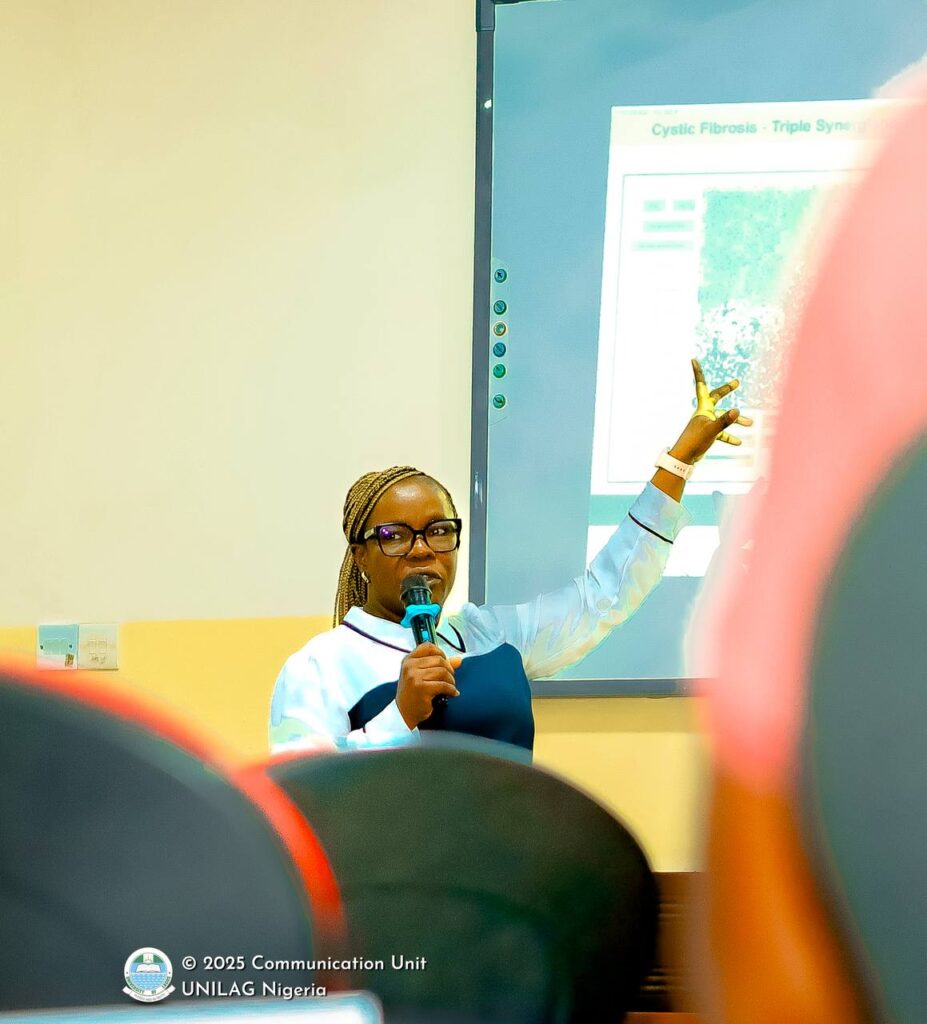
Known for her interdisciplinary research in mathematical biology and systems modelling, Dr. Emerenini, delivered a compelling lecture highlighting ways mathematical frameworks can help decode the behavior of microorganisms.
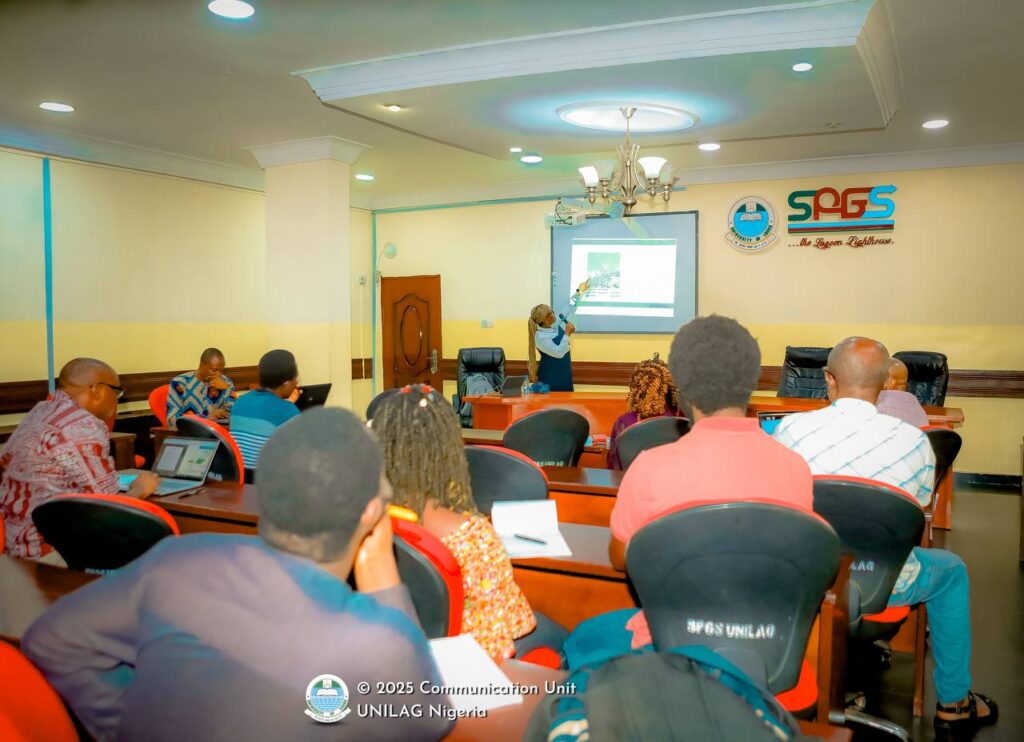
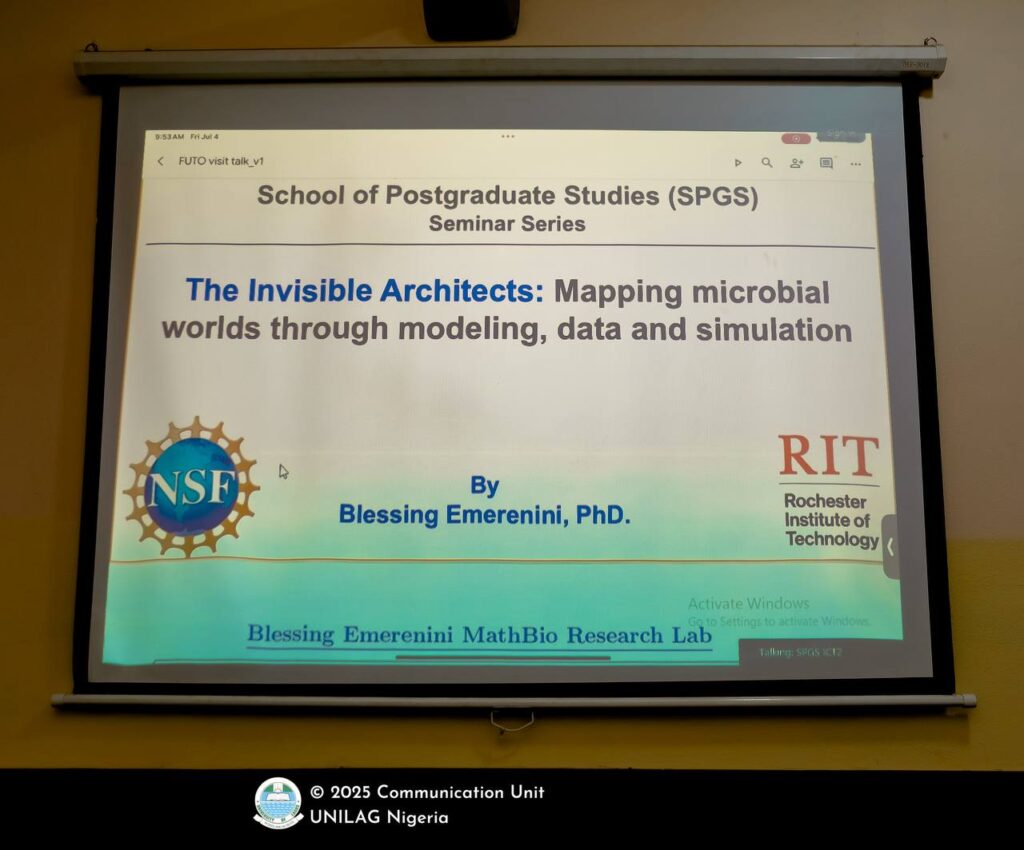
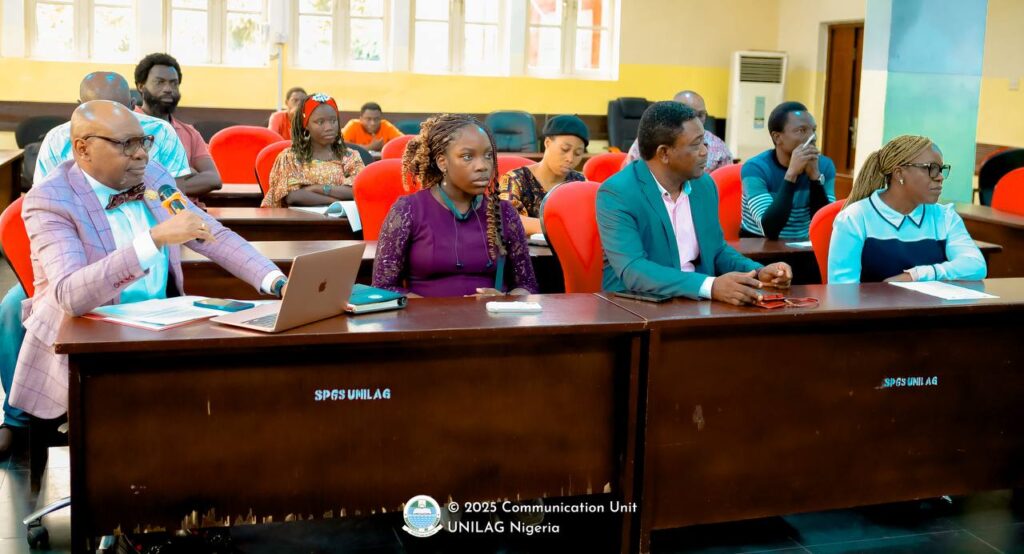
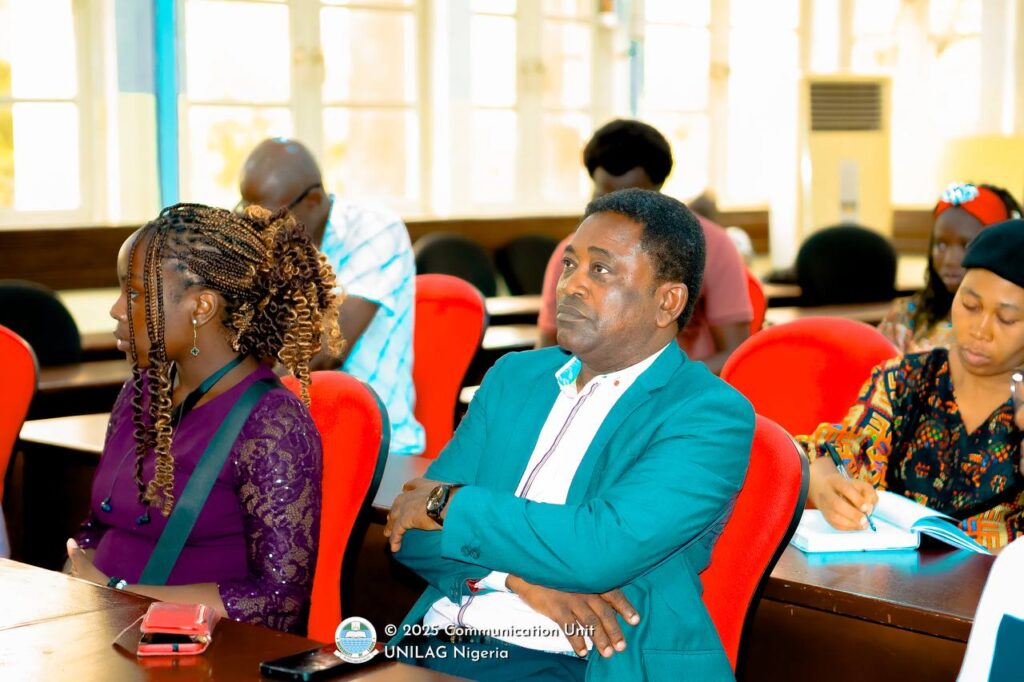
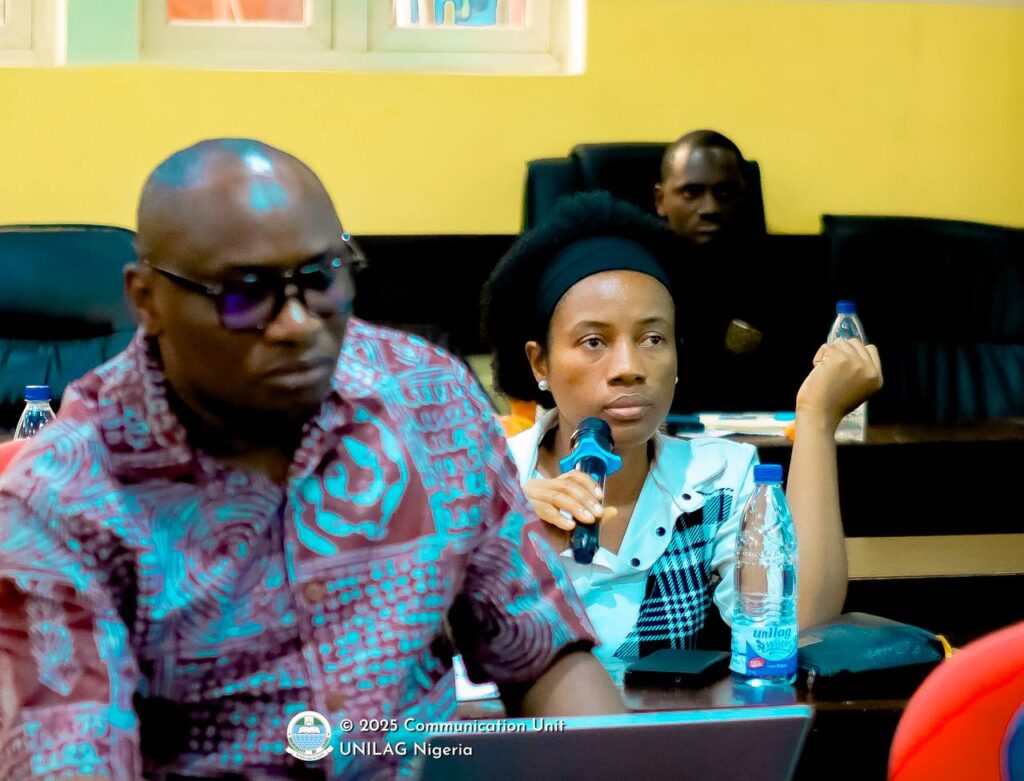
Using ‘Agrobacterium tumefaciens’, a bacterium responsible for tumor formation in plants as a case study, she demonstrated how these microbial films can attach to plant surfaces, influencing growth and development.
She further explored bacteria-virus interactions in patients with Cystic Fibrosis, a non-contagious yet chronic genetic disorder. Dr. Emerenini revealed that her team used mathematical models to simulate these dynamics and assess their impact on disease progression.
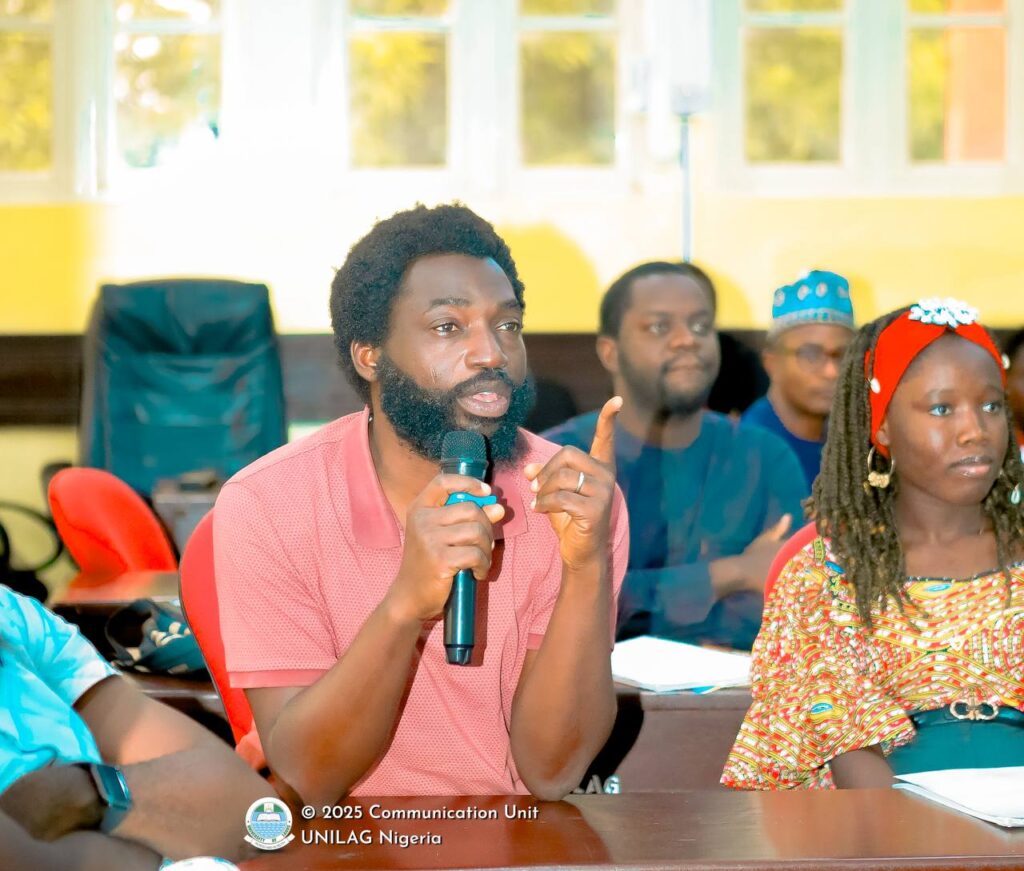
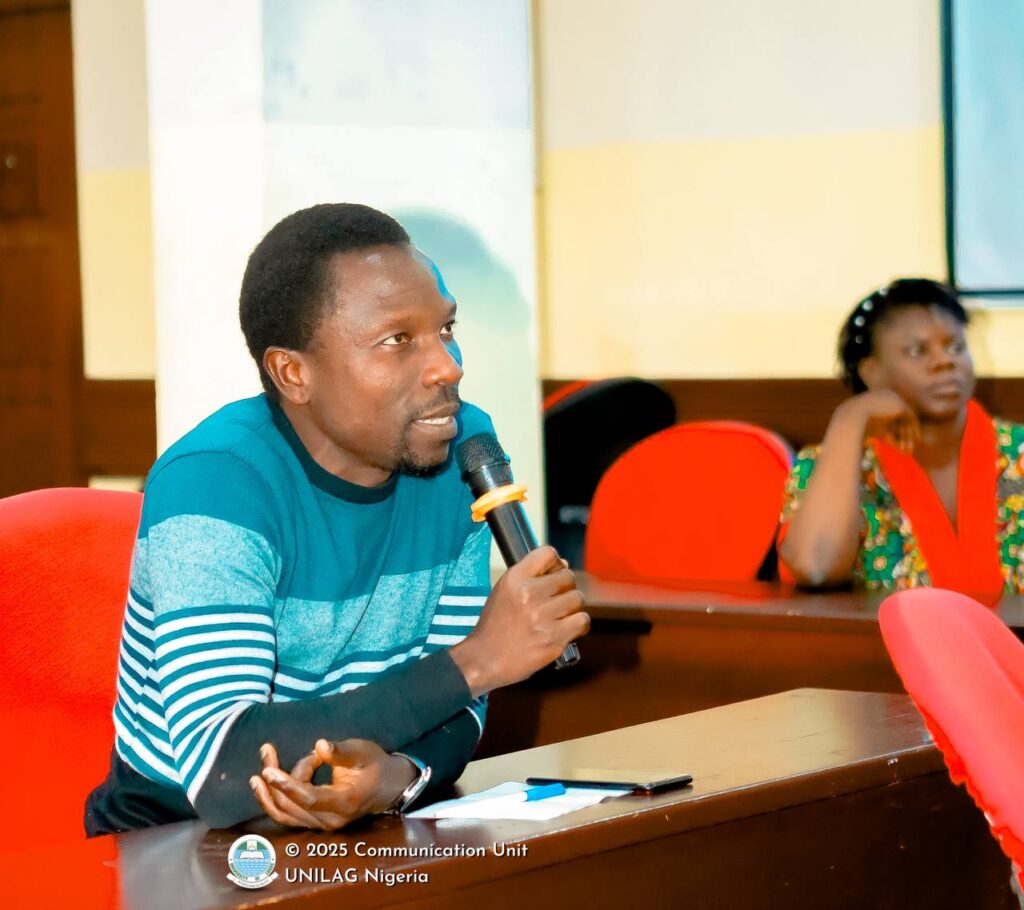
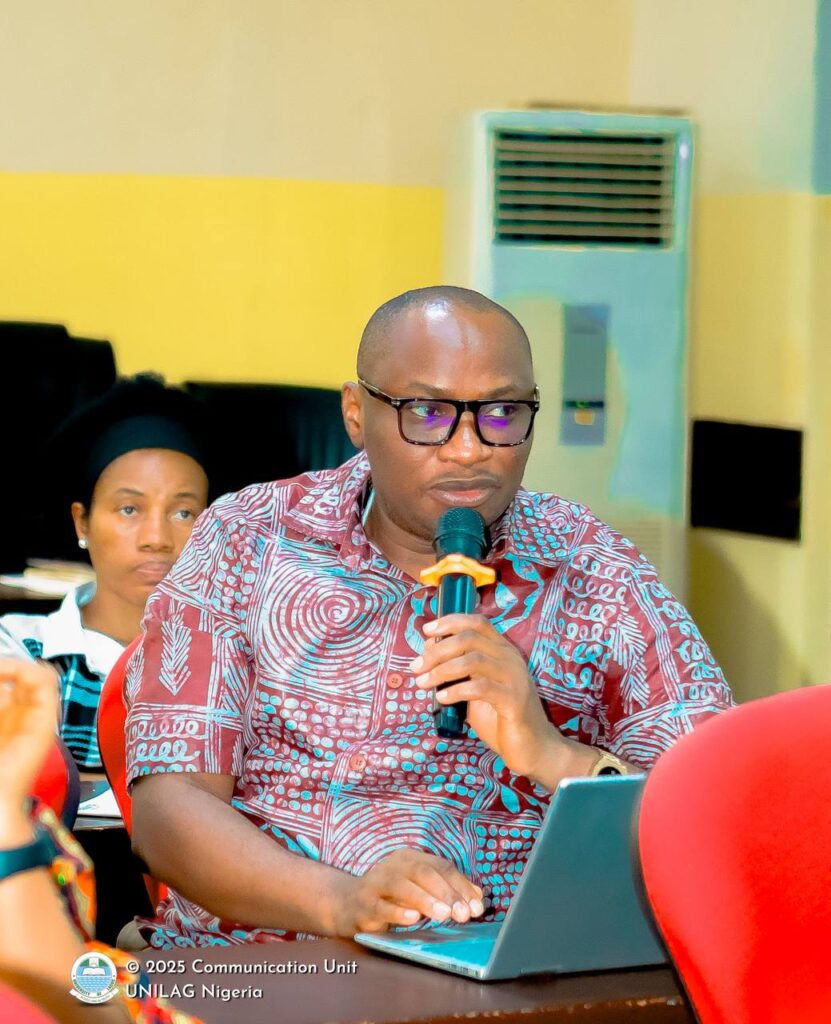
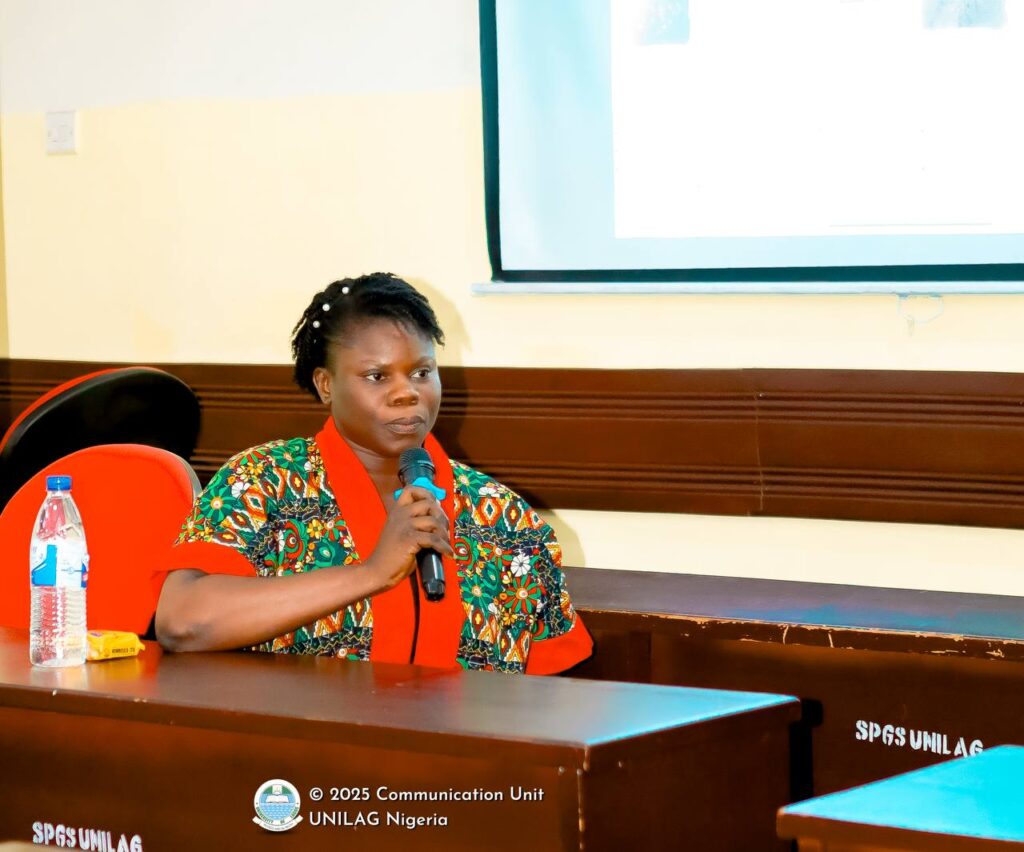
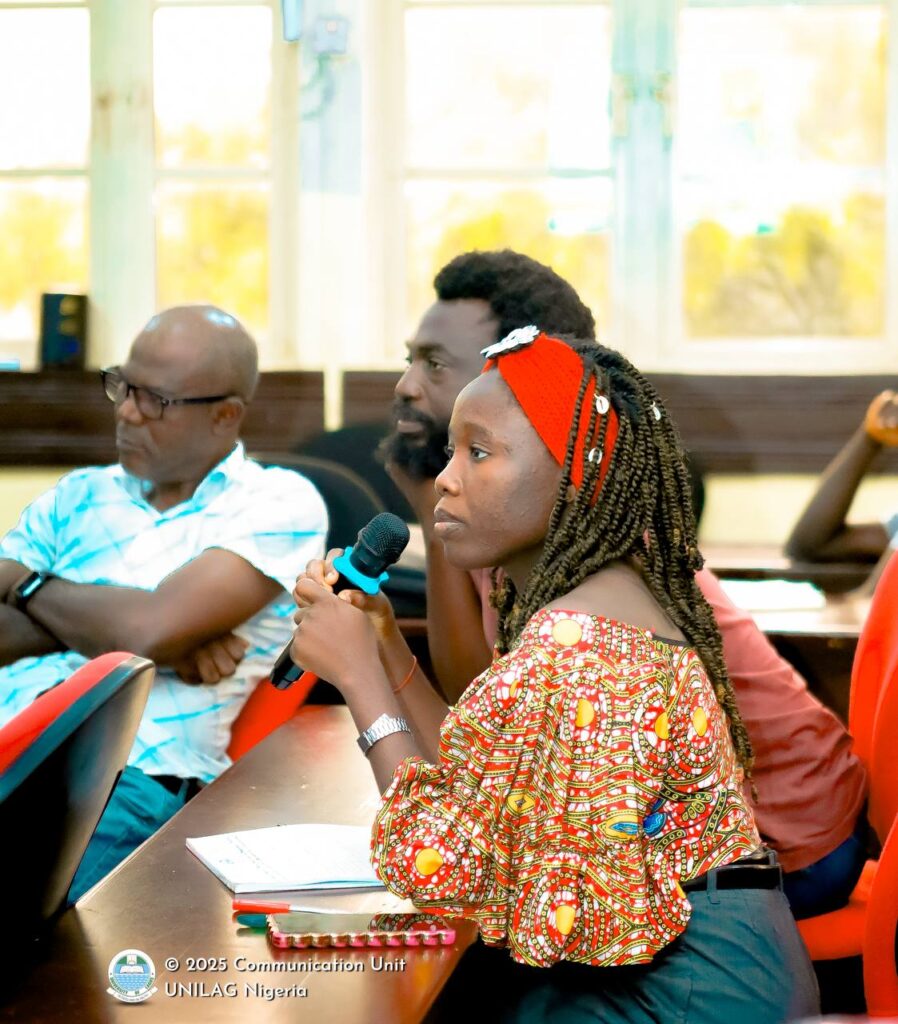
Many attendees at the event were captivated by Dr. Emerenini’s ability to use mathematical techniques from differential equations to computational simulations to analyze complex biological systems. The Question & Answer segment of the session provided an avenue for participants to discuss challenges and opportunities in interdisciplinary research, simulation methodologies, and the real-world impact of her work.

In his remarks at the commencement and end of Dr. Emerenini’s presentation, the Dean of SPGS, Professor Abraham Osinubi emphasized the value of cross-disciplinary learning, and encouraged participants to actively engage with the platform as a means of broadening their academic perspectives.
He praised Dr. Emerenini’s clarity in translating intricate biological concepts into accessible insights, and described her presentation as “illuminating” and a model of interdisciplinary scholarship. The SPGS Dean also used the occasion to encourage faculty members to pursue collaborative projects with researchers like Dr. Emerenini, noting that such partnerships remained critical to advancing cutting-edge research and innovation.
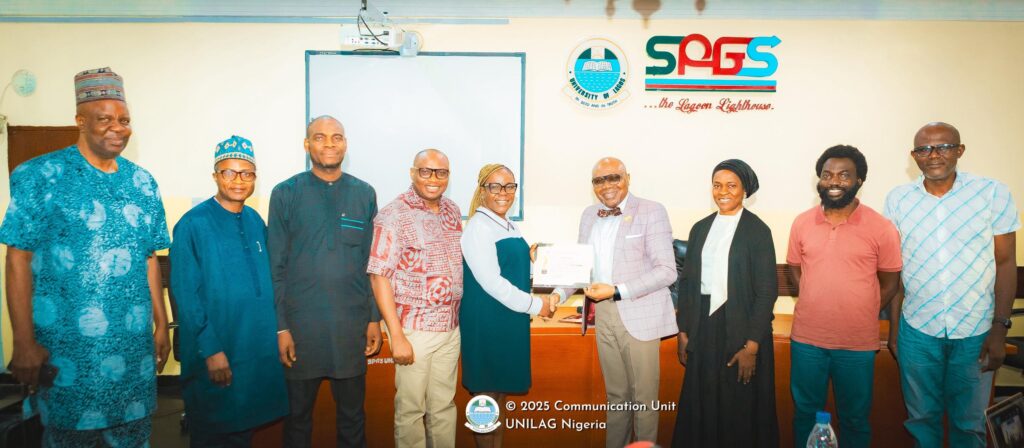
The event’s highlight was the presentation of an Award of Excellence by the SPGS to Dr. Emerenini, recognizing her outstanding contributions and officially inducting her into the School’s circle of distinguished honorees.
Report: Bayo Salau
Photographs: Ayo Oloyede

